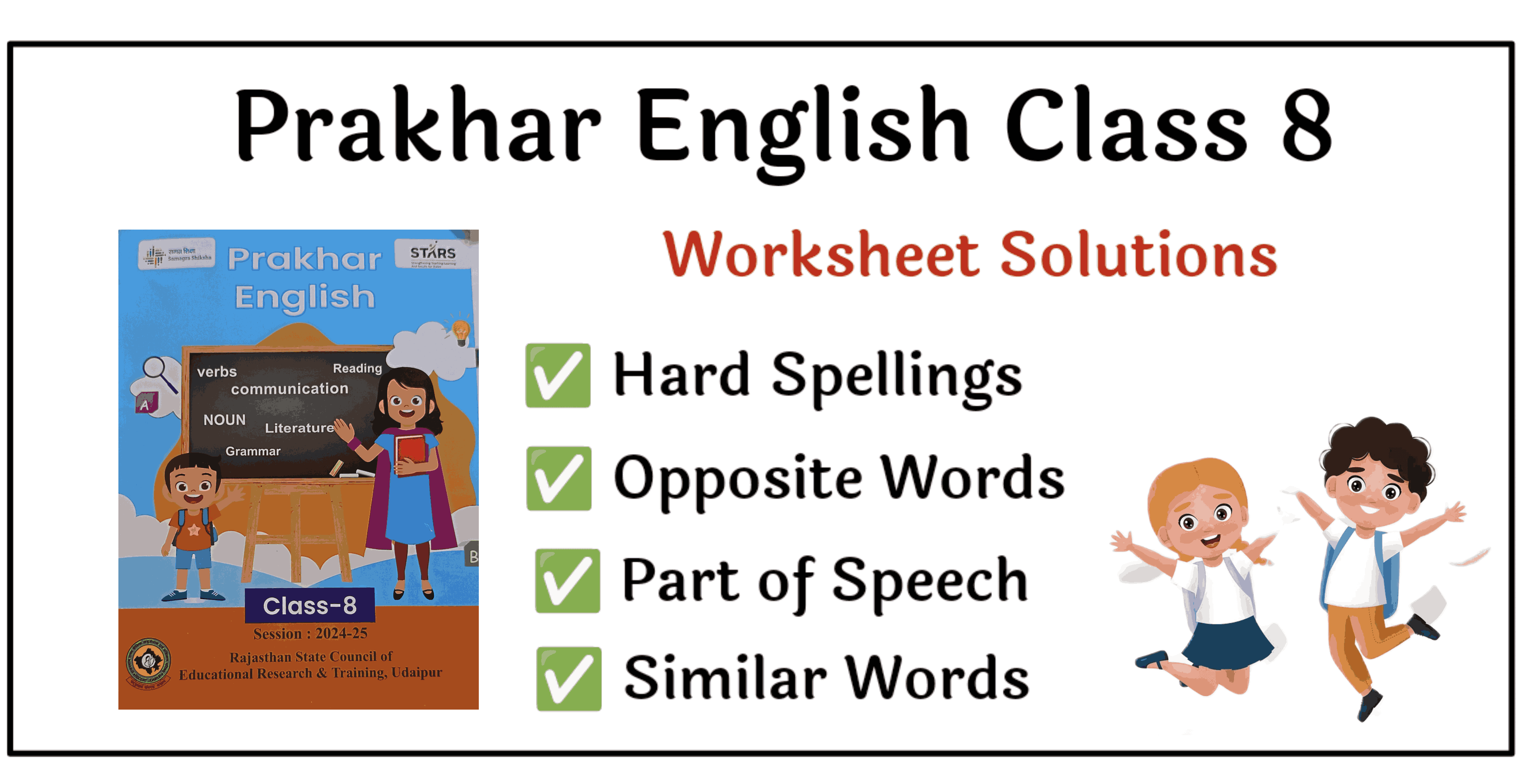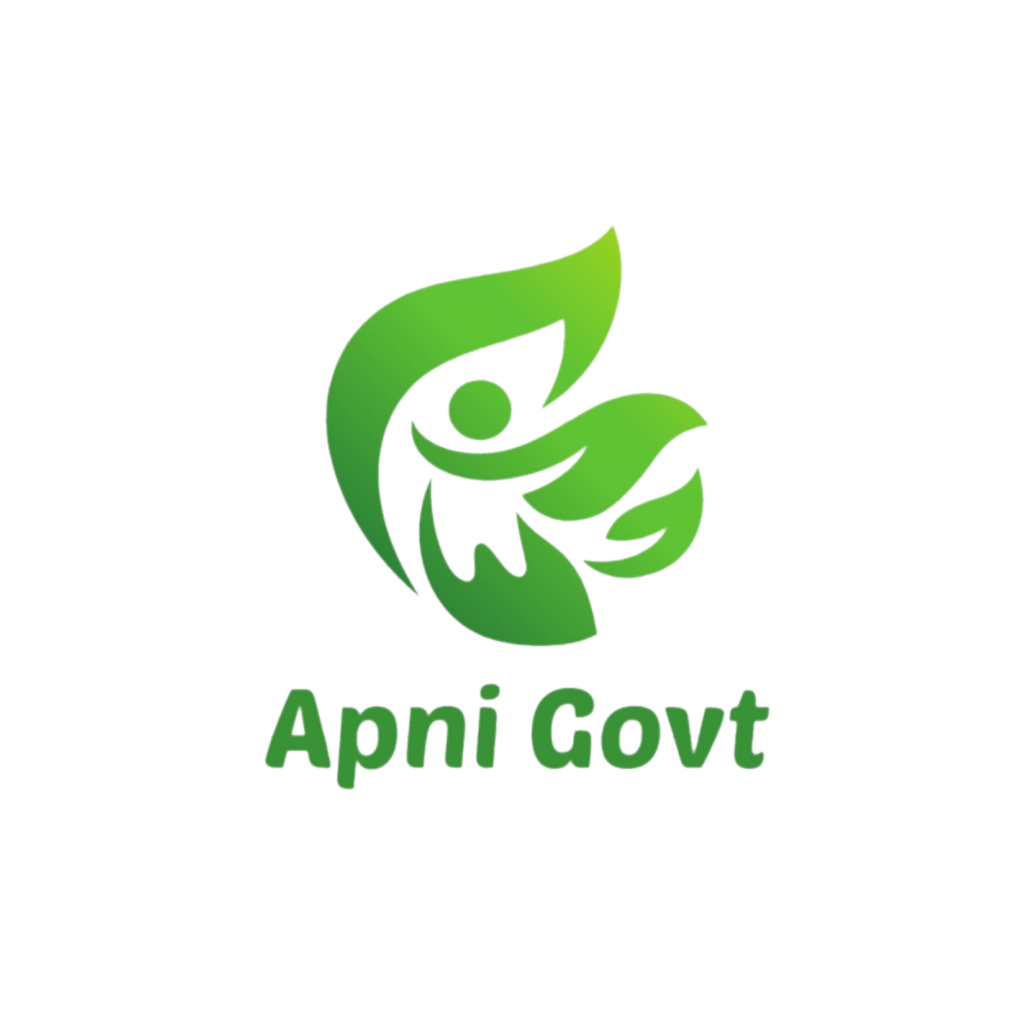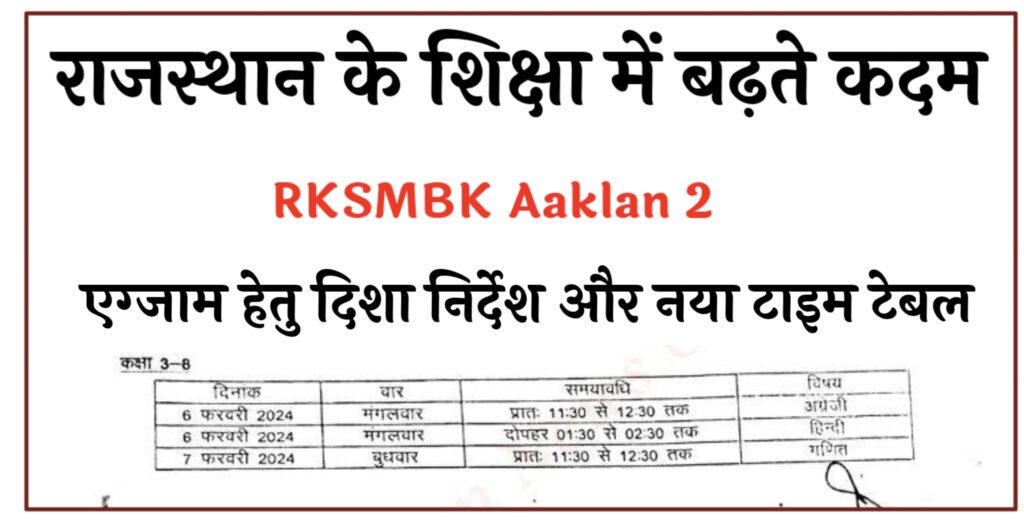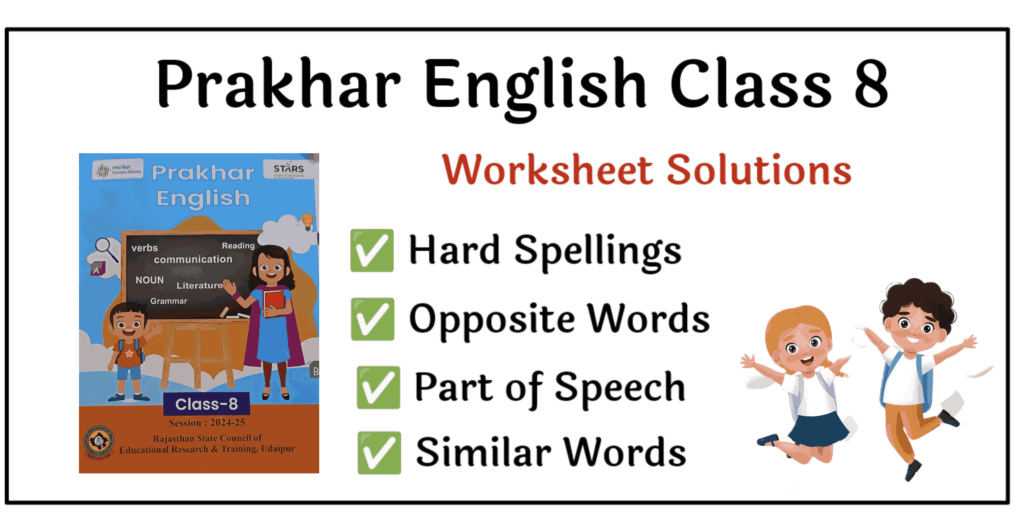Class 8 English Worksheet 9 Questions Answers
RSCERT Rajasthan State Council of Educational Research & Training, Udaipur द्वारा विद्यार्थियों के अधिगम स्तर को बढ़ाने के लिए एक बेहतरीन प्रयास हेतु वर्कबुक जारी की गयी है I हमने आपकी Learning में और सुधार करने और एक इस कार्यपत्रक (Class 8 Workbook) Worksheet 9 में Hard Spellings, Part of Speech, Grammar & Vocabulary , Gender,Opposite, Similar Words, One words etc यहाँ क्लियर किये है
इन्हें भी देखे

Worksheet 9 Solution English
Here’s a solved example for the worksheet based on the given questions:
Answers
-
List the festivals that are being celebrated in the picture.
The festivals being celebrated in the picture are Diwali, Christmas, Eid, and Holi. -
Name the festivals that you celebrate with your family and friends.
I celebrate Diwali, Holi, Christmas, and Raksha Bandhan with my family and friends. -
Which is your favourite festival and why?
My favourite festival is Diwali because I love decorating the house with lights, bursting crackers, and enjoying sweets. -
How do you celebrate it?
I wear traditional clothes like a kurta-pajama or saree, decorate the house with diyas, make rangoli, and pray to Goddess Lakshmi.
Hard Spellings
Worksheet 9 के शब्दों के हिन्दी उच्चारण और अर्थ
-
Festivals – फेस्टिवल्स – त्योहार
-
Celebrated – सेलेब्रेटेड – मनाया गया
-
Picture- पिक्चर- चित्र
-
Family – फैमिली – परिवार
-
Friends – फ्रेंड्स – मित्र / दोस्त
-
Favourite – फेवरेट – पसंदीदा
-
Why – वाई – क्यों
-
Celebrate – सेलेब्रेट – मनाना
-
Wear – वियर – पहनना
-
Traditional Clothes – ट्रेडिशनल क्लोथ्स – पारंपरिक वस्त्र
-
Diwali – दिवाली – रोशनी का त्योहार
-
Holi – होली – रंगों का त्योहार
-
Christmas – क्रिसमस – ईसा मसीह का जन्मदिन
-
Eid – ईद – मुसलमानों का पवित्र त्योहार
-
Rangoli – रंगोली – रंगीन डिज़ाइन / सजावट
Opposite words, Gender, WH words, Tenses
1. Opposite Words (Antonyms)
विलोम शब्द (अर्थ के विपरीत शब्द)
| Word (शब्द) | Opposite (विलोम) |
| Big (बड़ा) | Small (छोटा) |
| Happy (खुश) | Sad (दुखी) |
| Day (दिन) | Night (रात) |
| Hot (गरम) | Cold (ठंडा) |
| Clean (साफ) | Dirty (गंदा) |
| Fast (तेज) | Slow (धीमा) |
| Beautiful (सुंदर) | Ugly (भद्दा) |
| Rich (अमीर) | Poor (गरीब) |
| Open (खुला) | Close (बंद) |
| Hard (कठिन) | Easy (आसान) |
2. Gender (लिंग)
Masculine → Feminine (पुल्लिंग → स्त्रीलिंग):
| Masculine (पुल्लिंग) | Feminine (स्त्रीलिंग) |
| Boy (लड़का) | Girl (लड़की) |
| Father (पिता) | Mother (माता) |
| King (राजा) | Queen (रानी) |
| Actor (अभिनेता) | Actress (अभिनेत्री) |
| Lion (सिंह) | Lioness (सिंहनी) |
Common Gender (उभयलिंग):
- Teacher (शिक्षक/शिक्षिका)
- Doctor (डॉक्टर)
- Student (विद्यार्थी)
Neuter Gender (नपुंसक लिंग):
- Table (मेज़)
- Book (किताब)
- Chair (कुर्सी)
3. WH Words (प्रश्नवाचक शब्द)
| Word | Hindi Meaning (अर्थ) | Example Sentence |
| What | क्या | What is your name? (आपका नाम क्या है?) |
| Where | कहाँ | Where do you live? (आप कहाँ रहते हैं?) |
| Who | कौन | Who is your teacher? (आपके शिक्षक कौन हैं?) |
| When | कब | When is your birthday? (आपका जन्मदिन कब है?) |
| Why | क्यों | Why are you late? (आप देर से क्यों आए?) |
| Which | कौन सा | Which book is yours? (आपकी किताब कौन सी है?) |
| How | कैसे | How are you? (आप कैसे हैं?) |
4. Tenses (काल)
Tenses (काल) को तीन मुख्य प्रकार में बाँटा गया है:
- Present Tense (वर्तमान काल)
- Past Tense (भूतकाल)
- Future Tense (भविष्य काल)
(a) Present Tense (वर्तमान काल):
- Simple Present: I play. (मैं खेलता हूँ।)
- Present Continuous: I am playing. (मैं खेल रहा हूँ।)
- Present Perfect: I have played. (मैं खेल चुका हूँ।)
- Present Perfect Continuous: I have been playing. (मैं खेल रहा हूँ।)
(b) Past Tense (भूतकाल):
- Simple Past: I played. (मैंने खेला।)
- Past Continuous: I was playing. (मैं खेल रहा था।)
- Past Perfect: I had played. (मैं खेल चुका था।)
- Past Perfect Continuous: I had been playing. (मैं खेल रहा था।)
(c) Future Tense (भविष्य काल):
- Simple Future: I will play. (मैं खेलूँगा।)
- Future Continuous: I will be playing. (मैं खेल रहा होऊँगा।)
- Future Perfect: I will have played. (मैं खेल चुका होऊँगा।)
- Future Perfect Continuous: I will have been playing. (मैं खेल रहा होऊँगा।)
| Worksheet 1 Answers | Worksheet 2 Answers |
| Worksheet 3 Answers | Worksheet 5 Answers |


